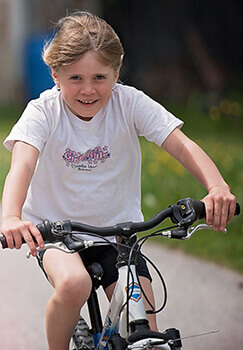Learning and Developing
See also: Supporting Children Through ExamsOne of your most important functions as a parent is to help your child to learn, and support their learning.
The process of learning is basically the process of making sense of the world.
Learning starts in babyhood, and continues throughout childhood and, hopefully, with the right care and encouragement, throughout life.
Learning, of course, doesn’t just mean formal learning, although this is important. Children also need to learn and develop informally. Discovering how the world works, and developing social and interpersonal skills to enable them to take their place in the world. Children will learn a great deal of these skills from you, their parent.

Formal and Informal Learning
Parents have a key role to play in supporting their children’s formal learning.
Many schools describe a ‘partnership’ with parents, emphasising the key role that parents play. After all, your child is only in school for six hours a day, and then only during term time. For the rest of their time, parents are a key influence.
One of the most useful things that you can do, for example, is to read with children on a regular basis.
Informal learning takes place in a wide range of settings. It encompasses ‘essentials’ like language development and exploring the environment, and also what we might describe as ‘extra-curricular activities’ like music and sport. Our page on supporting children’s informal learning explains more.
Parents also have a key role in helping their children to develop social skills and interpersonal skills. Some might even say that this is one of the most important aspects of parenting.
Settings for Learning
As your child grows and learns, you also need to choose settings for their learning.
Choosing childcare is a challenge with which most working parents will be familiar, and our page on Types of Childcare is designed to help.
Unless you choose to home-school your child, you will also face the challenge of Choosing a School for them, at both primary and secondary levels. While children are likely to have considerably more input into the decision when they are older, parental input is vital.
Later children will also have to make decisions about which subjects they wish to study, such decisions can be difficult and important - our page Choosing Study Subjects can help.
Developing Independence
Another important function of parents is to help their children to develop independence, a gradual and ongoing process that starts in babyhood and continues throughout childhood into adulthood.
This process, done right, ensures that children grow up able to manage their own lives, both physical and emotional.
For more, see our page on Encouraging and Increasing Independence.
We All Learn, All The Time
Learning is a natural process, and it would be very hard to stop children learning, even if you wanted to do so.
There are, however, useful things that parents can do to ensure that their children develop a growth mindset, which will help them to become lifelong learners, rather than deciding that learning is not for them.

